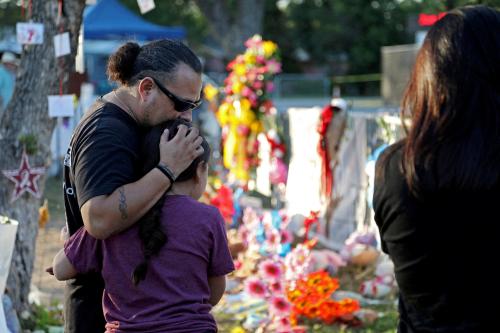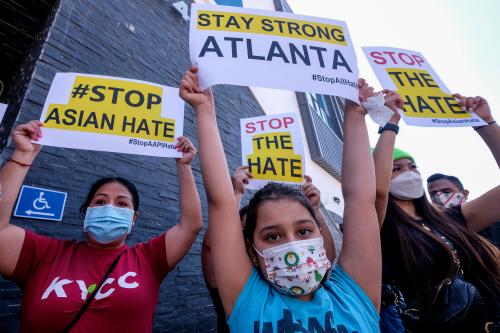Over the past twenty years, mass-marketing fraud has developed from an issue of localized crime into a serious global threat that affects millions of people all over the world on an annual basis. According to surveys conducted by various jurisdictions and international bodies, the annual total losses resulting from mass-marketing fraud may reach tens of billions of U.S. dollars worldwide.
Mass-marketing fraud features many of the same characteristics of contemporary transnational crime and its rampancy highlights the many deficiencies of international law enforcement cooperation. It is highly lucrative with low operational costs. It is truly transnational with regards to perpetrators and victims, while its proceeds are scattered throughout different jurisdictions. The perpetrators know how to exploit the incompatibilities amongst jurisdictions to create a low-risk environment for themselves and their fraudulent operations. Fuelled by advances in information technology, these fraudulent operations can be very secretive, efficient and extremely mobile. Unlike other conventional crimes such as drug trafficking or human smuggling where money laundering normally takes place subsequent to the commission of the crime, the money laundering process of mass-marketing fraud takes place simultaneous to the perpetration of the fraud itself. As highlighted by the International Working Group on Mass-Marketing Fraud, money laundering forms an essential component of these fraudulent operations, and the ease with which proceeds can be moved across borders is a primary factor facilitating the success of the operations.
The term “mass-marketing fraud” may not always be appropriate as the perpetrators constantly change their modus operandi to evade law enforcement detection and in response to the growing awareness of prospective victims. In some jurisdictions, mass-marketing fraud is often referred to as telemarketing fraud or telephone deception. In other jurisdictions, names specific to the cover stories deployed by the perpetrators, such as lottery fraud, heritage fraud, boiler room fraud, etc., are preferred. In lottery fraud, the perpetrators inform prospective victims that they have won a lottery, but before they can receive their winnings, they need to pay an “administrative fee”. In heritage fraud, the victims are deceived into believing that they are entitled to inherit valuable assets left by a distant relative who has just passed away. On the other hand, boiler room fraud requires a greater degree of organization and support, as the perpetrators set up bogus investment companies with false websites and documentation to lure victims through cold calls to invest in some high return shares in a foreign stock exchange. Recently, particularly in Asia, a new line of deception has emerged where the perpetrators tell the prospective victims that their sons or close relatives are being detained in a foreign jurisdiction by police (for committing an offense) or by a loan-shark (typically as a result of gambling debts).
Irrespective of the cover stories presented, the common modus operandi involves perpetrators approaching prospective victims by email, telephone or other communication means, to deceive them into wiring money to banks accounts in an overseas jurisdiction. The bank accounts are normally stooge accounts[1], accounts of shell companies, or business accounts of remittance agents. Very often the proceeds are withdrawn in cash or further wired to other jurisdictions. In some cases the proceeds are comingled with funds of legitimate trading, which is commonly referred to as “trade-based money laundering”. All these maneuvers are to obscure, complicate or break the audit trails so as to avoid law enforcement detection. The proceeds are eventually routed to a location as arranged by the perpetrators by another money laundering scheme involving the use of money couriers, underground remittance networks, etc. If trade-based money laundering is involved, the proceeds may be routed through normal banking systems.
Mass-marketing fraud accentuates some typical challenges to law enforcement in the investigation and prosecution of transactional crime. When the perpetrators, victims, and the proceeds are all located in different jurisdictions, the question of which jurisdiction(s) should coordinate the investigation and collection of evidence from all other relevant jurisdictions arises. For one reason or another, e.g. corruption, absence of mutual legal assistance agreement, different competing priorities, insufficient skills and resources, etc., some jurisdictions are not always keen to take the lead role, or assist in an investigation or prosecution, particularly when the victims are not located in their jurisdictions. It is not uncommon to have a situation where there is lack of necessary foreign evidence to prove the fraud. In the absence of such evidence many jurisdictions often find their hands tied by their over complex money laundering offenses regarding proceeds and money launderers surfacing in their jurisdictions.
Even though there is international cooperation, the level of coordination also leaves much to be desired. Timely interdiction of the proceeds once they have surfaced is important as victims’ losses can only be recovered if the proceeds can be stopped in a timely fashion. This window of opportunity can be extremely narrow. Once the proceeds change their form, e.g. from funds in a bank account to a cash withdrawal, or even worse leaving a jurisdiction, substantial difficulties and barriers are added to the investigation. Worse still is the fact that when the proceeds are gone there is little incentive for victims to come forward to assist in the relevant investigation and prosecution. Domestic collaboration amongst law enforcement agencies, the Financial Intelligence Unit[2] and financial institutions is equally important, but not easy to achieve because of various reasons, e.g. internal bureaucratic protocols, unnecessary complex law enforcement structures, etc.
Hong Kong has been seriously affected by mass-marketing fraud; its role as an international financial center with free inflow and outflow of funds makes it an attractive target for those seeking to establish money laundering schemes arising from fraud. In recent years there have been thousands of cases annually involving local and overseas victims. Hong Kong’s response to the problem has primarily focused on public education and publicity, and more importantly, law enforcement. For public education and publicity, emphasis has been placed on the elderly as statistics indicate that they are the most vulnerable, although highly educated young professionals also fall victim from time to time. Relevant anti-crime messages are circulated as widely as possible by means of public announcements and police stories through media, posters and leaflets, as well as through community centers, schools, and banks.
In respect to law enforcement, the Hong Kong Police endeavors to recover the victims’ losses and to prosecute the perpetrators including the money launderers no matter where the perpetrators are based or whether the victims are in Hong Kong or not. To these ends, the Hong Kong Police set up dedicated investigation units at both Headquarters and District levels to coordinate and consolidate all investigations of mass-marketing fraud. Dedicated investigation units have the advantage of achieving expertise and efficacy in investigation and prosecution and avoiding a compartmentalized approach that has been criticized as an inefficient. Moreover, they can enhance domestic and international collaboration through establishing close contacts with relevant stakeholders such as financial institutions, local and overseas Financial Intelligence Units and law enforcement agencies. They mount intelligence-based operations to identify and target perpetrating groups, share strategic and tactical intelligence, as well as conduct joint investigations with overseas agencies as and when necessary.
Capitalizing on the robustness of the Hong Kong money laundering legislation, these dedicated units have been successful in interdicting some of the proceeds of mass-marketing fraud transiting Hong Kong and pursuing money laundering prosecutions against those who dealt with the proceeds in Hong Kong. This has been achieved despite the fact that very often there is absence of evidence to prove the fraud abroad.
Financial intelligence forms an integral part of effective law enforcement against the problem. Many jurisdictions fail to make good use of its Financial Intelligence Unit in combating mass-marketing fraud. The Financial Intelligence Unit of Hong Kong, known as the Joint Financial Intelligence Unit (“JFIU”)[3], plays an important role in the fight against the problem. Because of its well-established relationships with financial institutions, it conveniently acts as a point of contact between the dedicated investigation units and the financial institutions, as well as with overseas Financial Intelligence Units and law enforcement agencies. Financial institutions, banks in particular, are an important source of information of mass-marketing fraud. There have been numerous cases where banks identified suspicious transactions and accounts which later proved to be related to mass-marketing fraud, well before the relevant victims were aware that they had been deceived. The JFIU regularly issues case studies and red-flag indicators to banks to raise the awareness of their front line staff on the latest modus operandi and to assist them to identify suspicious transactions and accounts. Whenever a bank identifies suspicious transactions or funds in an account, a bank is obligated to file a suspicious activity report to the JFIU. The JFIU will then liaise with the relevant dedicated investigation units and if necessary the relevant overseas FIU or law enforcement authorities to establish the sources of the funds. After reporting, as obligated under the anti-money laundering legislation of Hong Kong, the bank needs to wait for the “consent” of the JFIU for it to continue to deal with the funds; otherwise the bank will run the risk of being prosecuted for money laundering if the funds are later confirmed to be the proceeds of crime. If the JFIU has a reasonable cause to suspect that the funds in question are the proceeds of mass-marketing fraud, the JFIU will withhold the consent[4] and disseminate the report to a dedicated investigation unit for investigation and action. This arrangement, provided under Hong Kong legislation, conveniently provides the JFIU with a means of holding suspicious funds pending investigation and/or recovery, and hence facilitates the proceeds to be timely interdicted once they are surfaced.
International cooperation is indispensible to any effective law enforcement approach to transnational crime. The Hong Kong Police treat every overseas request for assistance very seriously irrespective of any involvement of local victims. Hong Kong can provide a wide range of assistance, such as sharing evidence, restraining and confiscating criminal assets, surrendering fugitives, and sharing confiscated assets. The JFIU can swiftly respond to an overseas request for holding suspicious funds in a Hong Kong bank account if there is information and/or evidence to show that the funds may be the proceeds of mass-marketing fraud regardless of where the fraud has taken place.
Moreover, to pool together international efforts against the problem, the Hong Kong Police initiated a Typology Project on Mass-Marketing Fraud at the Asia Pacific Group on Money Laundering (“APG”)[5] in July 2010. The project is co-chaired by Hong Kong and Malaysia. It seeks to assist member jurisdictions to understand the fraudulent operations and the associated money laundering activities; identify deficiencies in existing institutions and approaches to the problem; and share preventive and enforcement best practices, with a view to deliberating and formulating a global solution. The project is particularly aimed at jurisdictions in the region with less developed AML regimes which are now only starting to arise in these cases as their economies develop.
By exploiting jurisdictional incompatibilities and the ineffectiveness of international law enforcement cooperation, mass-marketing fraud has achieved a high degree of impunity. To retain their relevancy and effectiveness, law enforcement agencies need to, without delay, critically review their domestic institutions and work together to strengthen the exiting international collaboration, so as to bring an end to the problem.
[1] Stooge accounts, often referred to as strawmen, are accounts opened by a third party for small reward. However, these individuals, often low-paid drug addicts or students, never control the accounts.
[2] Financial Intelligence Unit is a national agency set up in accordance with Recommendation 26 of the Financial Action Task Force with the primary function of receiving and analyzing suspicious activity reports for the purposes of anti-money laundering and to counter the financing of terrorism.
[3] It was set up in 1989 in accordance with the Financial Action Task Force Recommendation 26. As its name implies, it is jointly operated by the Hong Kong Police and Hong Kong Customs but is mainly funded and managed by the former.
[4] In practice, the JFIU will issue a No Consent letter to the bank. A No Consent letter is not a court order and a bank is not obliged to follow it. However, if the bank disregards it and continues to deal with the funds, it may be liable to prosecution. Therefore, banks normally treat a No Consent Letter as a warning and will not further deal with the funds in question.
[5] APG is a Financial Action Task Force-style regional body for the Asia Pacific region. It has 40 member countries or jurisdictions in Asia, the Pacific Ocean and North America. Its mandate is to ensure and assist member countries to implement international AML/CFT standards.



Commentary
Op-edTransnational Organized Crime and Mass-Marketing Fraud: A Call for a Swift and Collaborated Response
August 31, 2011